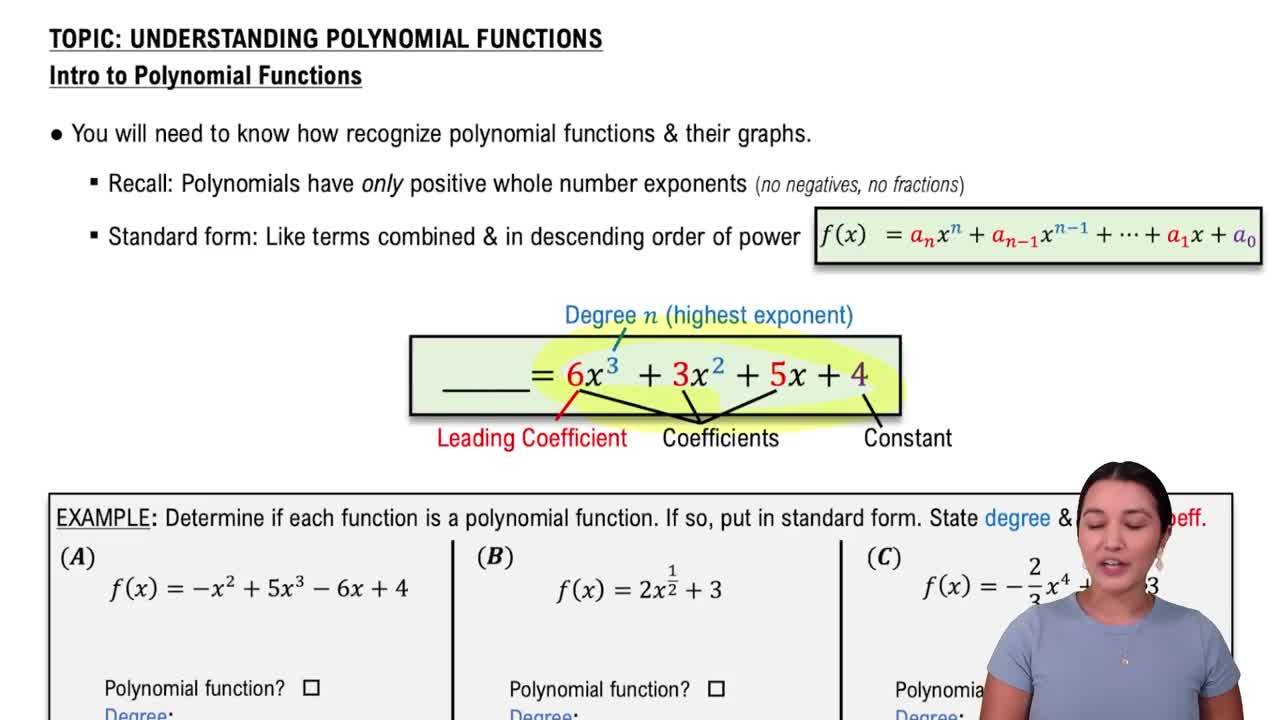Here are the essential concepts you must grasp in order to answer the question correctly.
Complex Zeros
Complex zeros are solutions to polynomial equations that may include imaginary numbers. A complex zero can be expressed in the form a + bi, where a and b are real numbers, and i is the imaginary unit. Understanding complex zeros is essential for analyzing polynomial functions, especially when the polynomial has no real solutions.
Recommended video:
Polynomial Functions
A polynomial function is a mathematical expression involving a sum of powers in one or more variables multiplied by coefficients. The degree of the polynomial, determined by the highest power of the variable, influences the number of zeros it can have. For example, a fifth-degree polynomial can have up to five zeros, which may be real or complex.
Recommended video:
Introduction to Polynomial Functions
Factoring and the Fundamental Theorem of Algebra
The Fundamental Theorem of Algebra states that every non-constant polynomial function has at least one complex root, and the total number of roots (counting multiplicities) equals the degree of the polynomial. Factoring the polynomial can help identify its zeros, as it breaks down the polynomial into simpler components, making it easier to solve for the roots.
Recommended video:
Introduction to Algebraic Expressions
 Verified step by step guidance
Verified step by step guidance


